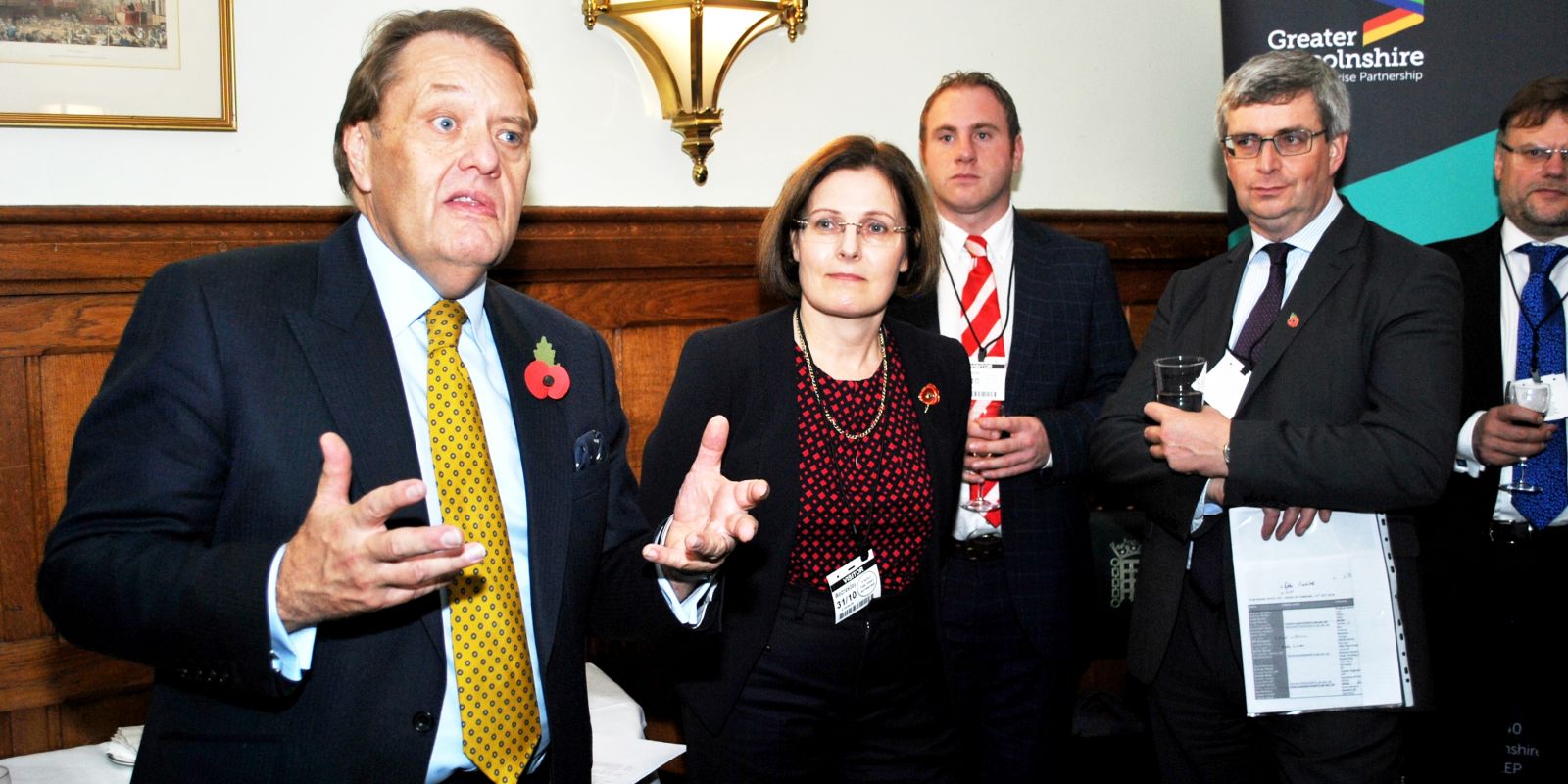Food Board Tackles Issues in Parliament
The Greater Lincolnshire LEP's Food Board takes its agenda to Parliament
Key issues facing the food industry were on the agenda when our Food Board met MPs, peers and DEFRA officials in the House of Commons at the end of October.
A very positive discussion on the future of the food chain was led by our Chair, Ursula Lidbetter MBE, and Sir John Hayes MP. Lincolnshire parliamentarians Melanie Onn MP, Nic Dakin MP, Martin Vickers MP, Dr Caroline Johnson MP, Baroness Redfern and Lord Haskins also met Food Board members at the reception.
Discussions focused on three major areas:
Workforce supply and skills
- Will Naylor of Bakkavor and Robert Smith of Danish Crown both spoke about the challenges associated with securing the skilled workforce needed for current operations and to facilitate growth. Both spoke about the potential to improve productivity and working conditions through automation, but explained that this requires considerable investment in physical facilities and training and will therefore take time to implement.
Trade
- Jonathan Oldfield of Moy Park explained that trade was a major issue in the meat sector. Simon Dwyer of Seafood Grimsby and Humber and Simon Smith of Seachill debated the fish sector where 90% of the seafood processed is imported mostly from EEA states and where the need for frictionless trade is essential to the continuation of the trade in meat and fish products.
- James Dallas of Openfield posed that Brexit does provide the potential to improve the ease with which the UK can trade by reducing regulation if approached correctly. In the grain sector this should include focusing on targeting higher value markets and added value products.
Infrastructure
- The need for competitive infrastructure was discussed and focused on electricity supplies and water resources; where the need to unite flood prevention and water supply to provide holistic landscape scale water management was debated. The potential to develop a water grid and to move water was also seen as being an innovative solution to meet future water supply challenges;
- On energy it was recognised that to the development of a rural smart grid programme for Lincolnshire offers huge potential.


